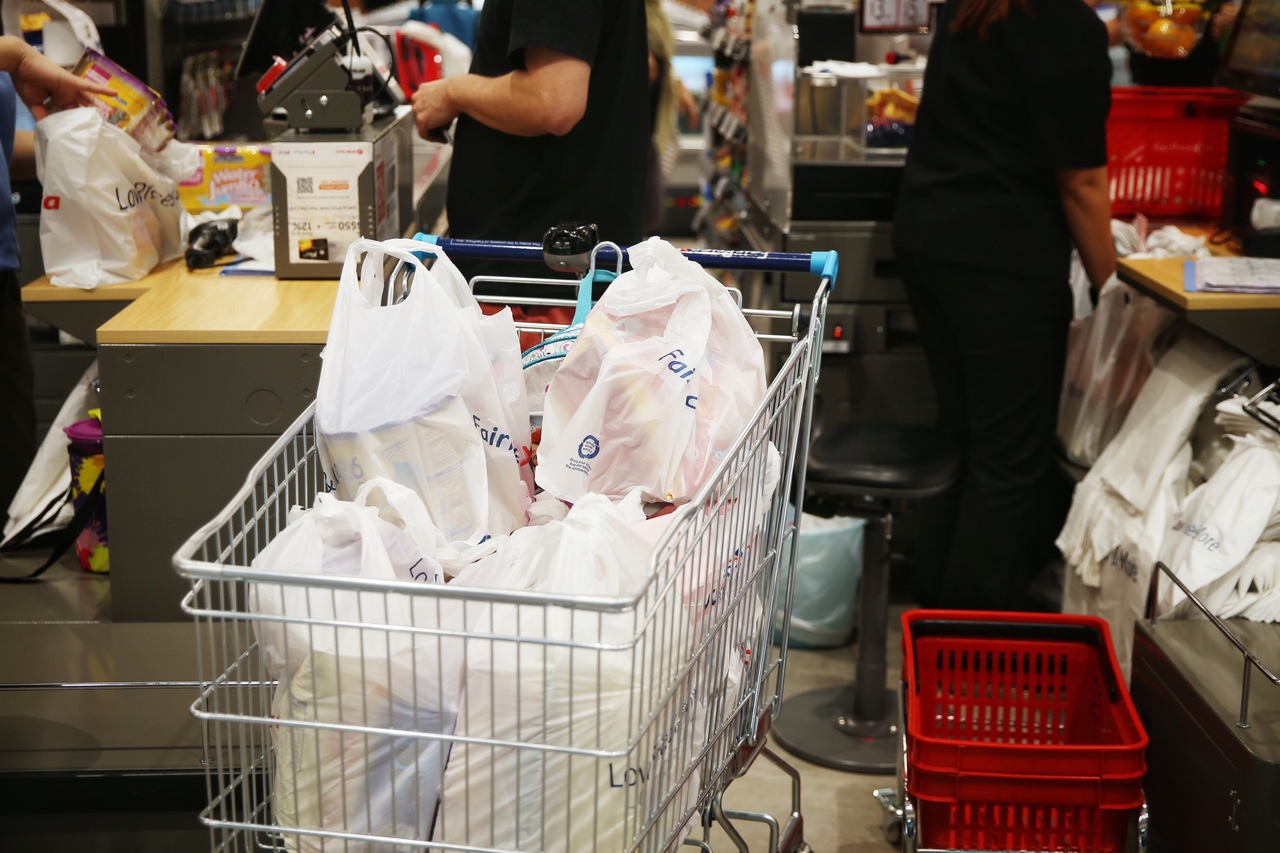Consumers should pay if they take 3 or more plastic bags at supermarkets: Citizen workgroup
Sign up now: Get ST's newsletters delivered to your inbox

It also proposed that retailers should not provide any bags at all on one day of the week.
ST PHOTO: JASON QUAH
SINGAPORE - Consumers should have to pay a fee for each plastic bag if they take three or more of them at supermarkets, a citizen workgroup has suggested.
Smaller bags given by pharmacies, for instance, should be charged per bag regardless.
Comprising of 55 members from diverse backgrounds, the workgroup on Saturday (Jan 16) made the suggestion when it presented ideas on reducing disposable waste in Singapore.
It also proposed that retailers should not provide any bags at all on one day of the week to encourage customers to bring their own reusable bags.
These suggestions will be studied by the National Environment Agency and the Ministry of Sustainability and the Environment. At least three of the 14 suggested projects will be selected for pilot trials on Feb 27.
Senior Minister of State for Sustainability and the Environment Amy Khor said: "This is something we will definitely look into and at the same time consider how to mitigate the possible negative effects that such a charging mechanism would have, say on lower income households."
But she added that disposable plastic bags are still necessary in the Singapore context for people to bag their waste in a responsible and hygienic manner.
However, to increase awareness, she noted that the ministry is introducing mandatory packaging reporting.
This framework, which covers producers like manufacturers and retailers like supermarkets, and was announced in 2017, will take effect this year. They will have to start measuring their use of packaging this year and report the usage in 2022.
These moves are especially important, with the rise in domestic waste due to consumers opting for takeaway meals during the Covid-19 pandemic.
Dr Khor said: "For the first 10 months of 2020, ... domestic waste likely could have increased somewhat, especially during the circuit breaker months.
"But... the total waste generated actually showed a decline, compared with 2019, because of a reduction in economic activities."
Ms Sangeeta Nair, 46, an educator who is part of the workgroup, said: "Plastic bag consumption has definitely gone up, together with other disposables, both because of more takeaways and the concern over hygiene. Covid-19 has accelerated this and highlighted the problem of disposable consumption."
Overall, the amount of solid waste generated in Singapore in 2019 dropped by 6 per cent compared with 2018, marking the third yearly reduction since 2017.
Dr Khor said: "But more can and needs to be done.
"Plastics, for example, remain the fourth largest source of waste in Singapore. It contributes 13 per cent to our total waste, but has a recycling rate of only 4 per cent."
Other suggestions by the workgroup concerned the use of disposable cutlery and packages at eateries.
For instance, it said reusable diningware could be provided nationwide so that people could bring them to hawker centres and clean them at centralised washing facilities.
A team in the workgroup also proposed banning disposable straws, stirrers, drink carriers and cutlery completely.
There could also be tiered tax rebates for businesses that reduce their use of disposables, particularly those in the food and beverage sector, the workgroup said.


